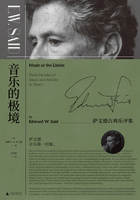The period of jurists ends with Alexander Severus. FromHadrian to that emperor the improvement of law was carried on, asit is at the present moment in most continental countries, partlyby approved commentaries and partly by direct legislation. But inthe reign of Alexander Severus the power of growth in RomanEquity seems to be exhausted, and the succession of jurisconsultscomes to a close. The remaining history of the Roman law is thehistory of the imperial constitutions, and, at the last, ofattempts to codify what had now become the unwieldy body of Romanjurisprudence. We have the latest and most celebrated experimentof this kind in the Corpus Juris of Justinian.
It would be wearisome to enter on a detailed comparison orcontrast of English and Roman Equity but it may be worth while tomention two features which they have in common. The first may bestated as follows. Each of them tended, and all such systemstend, to exactly the same state in which the old common law waswhen Equity first interfered with it. A time always comes atwhich the moral principles originally adopted have been carriedout to all their legitimate consequences, and then the systemfounded on them becomes as rigid, as unexpansive, and as liableto fall behind moral progress as the sternest code of rulesavowedly legal. Such an epoch was reached at Rome in the reign ofAlexander Severus; after which, though the whole Roman world wasundergoing a moral revolution, the Equity of Rome ceased toexpand. The same point of legal history was attained in Englandunder the chancellorship of Lord Eldon, the first of our equityjudges who, instead of enlarging the jurisprudence of his courtby indirect legislation, devoted himself through life toexplaining and harmonising it. If the philosophy of legal historywere better understood in England, Lord Eldon's services would beless exaggerated on the one hand and better appreciated on theother than they appear to be among contemporary lawyers. Othermisapprehensions too, which bear some practical fruit, wouldperhaps be avoided. It is easily seen by English lawyers thatEnglish Equity is a system founded on moral rules; but it isforgotten that these rules are the morality of past centuries --not of the present-that they have received nearly as muchapplication as they are capable of, and that though of coursethey do not differ largely from the ethical creed of our own day,they are not necessarily on a level with it. The imperfecttheories of the subject which are commonly adopted have generatederrors of opposite sorts. Many writers of treatises on Equity,struck with the completeness of the system in its present state,commit themselves expressly or implicitly to the paradoxicalassertion that the founders of the chancery jurisprudencecontemplated its present fixity of form when they were settlingits first bases. Others, again, complain and this is a grievancefrequently observed upon in forensic arguments -- that the moralrules enforced by the Court of Chancery fall short of the ethicalstandard of the present day. They would have each Lord Chancellorperform precisely the same office for the jurisprudence which hefinds ready to his hand, which was performed for the old commonlaw by the fathers of English equity. But this is to invert theorder of the agencies by which the improvement of the law iscarried on. Equity has its place and its time; but I have pointedout that another instrumentality is ready to succeed it when itsenergies are spent.
Another remarkable characteristic of both English and RomanEquity is the falsehood of the assumptions upon which the claimof the equitable to superiority over the legal rule is originallydefended. Nothing is more distasteful to men, either asindividuals or as masses, than the admission of their moralprogress as a substantive reality. This unwillingness showsitself, as regards individuals, in the exaggerated respect whichis ordinarily paid to the doubtful virtue of consistency. Themovement of the collective opinion of a whole society is toopalpable to be ignored, and is generally too visible for thebetter to be decried; but there is the greatest disinclination toaccept it as a primary phenomenon, and it is commonly explainedas the recovery of a lost perfection -- the gradual return to astate from which the race has lapsed. This tendency to lookbackward instead of forward for the goal of moral progressproduced anciently, as we have seen, on Roman jurisprudenceeffects the most serious and permanent. The Roman jurisconsults,in order to account for the improvement of their jurisprudence bythe Praetor, borrowed from Greece the doctrine of a Natural stateof man -- a Natural society -- anterior to the organisation ofcommonwealths governed by positive laws. In England, on the otherhand, a range of ideas especially congenial to Englishmen of thatday, explained the claim of Equity to override the common law bysupposing a general right to superintend the administration ofjustice which was assumed to be vested in the king as a naturalresult of his paternal authority. The same view appears in adifferent and a quainter form in the old doctrine that Equityflowed from the king's conscience -- the improvement which had infact taken place in the moral standard of the community beingthus referred to an inherent elevation in the moral sense of thesovereign. The growth of the English constitution rendered such atheory unpalatable after a time; but, as the jurisdiction of theChancery was then firmly established, it was not worth while todevise any formal substitute for it. The theories found in modernmanuals of Equity are very various, but all are alike in theiruntenability. Most of them are modifications of the Romandoctrine of a natural law, which is indeed adopted in tenour bythose writers who begin a discussion of the jurisdiction of theCourt of Chancery by laying down a distinction between naturaljustice and civil.
Ancient Law
by Henry Maine















